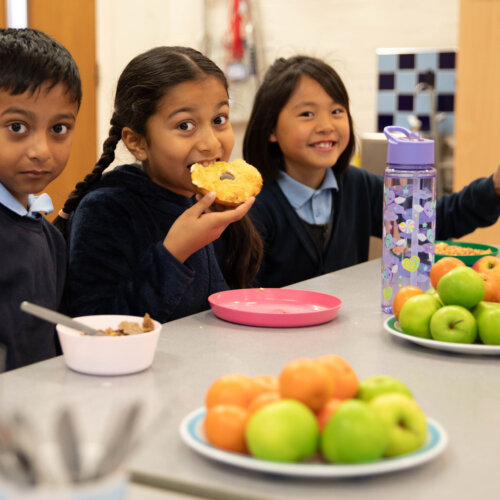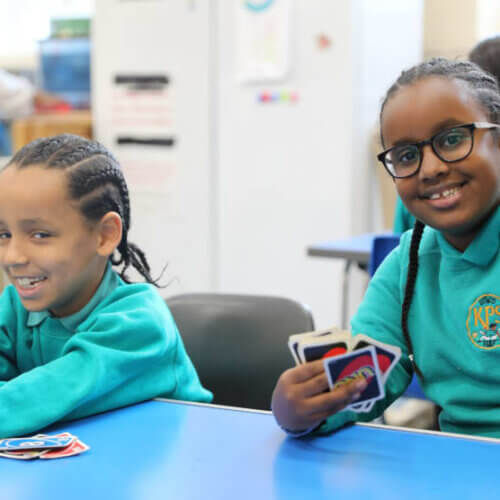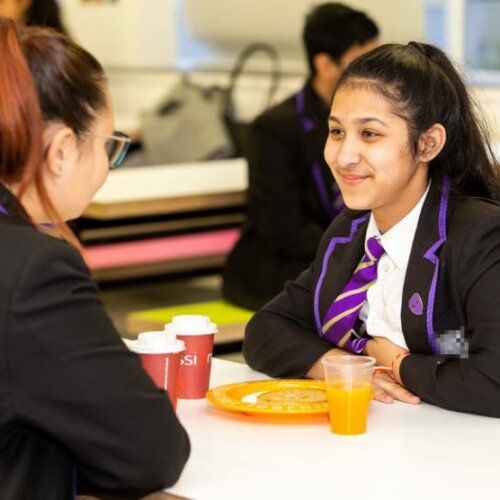Reading school breakfast club provider, Magic Breakfast, strongly welcomes the findings of a ground-breaking new study showing a direct and positive link between the breakfast habits of pupils and their educational attainment.
The research, carried out by public health experts at Cardiff University and published in the Journal of Public Health Nutrition, involves 5,000 pupils aged 9 to 11 from more than 100 primary schools. The study – thought to be the largest to date looking at longitudinal effects on standardised school performance – finds that children who eat breakfast, and who eat a better quality breakfast, achieve higher academic outcomes.*
Magic Breakfast is a charity providing free, nutritious breakfasts to more than 22,000 children each school day and its own experience and research has also found a strong link between eating a healthy breakfast and educational attainment. The charity believes that now is the time for investment in school breakfasts and that a policy should be put in place that will ensure all children have access to a healthy breakfast at the start of the school day.
Magic Breakfast’s 2015 survey, of headteachers, school business managers and breakfast club coordinators at its partner schools, found overwhelming evidence of the positive impact that eating a nutritious “magic” breakfast has on school children. Of those who responded to the survey (345 schools): 84% reported improved educational attainment among pupils who attend breakfast club with 96% reporting increased energy levels/alertness and 95% reporting improved concentration levels among pupils.
Carmel McConnell, Founder and Chief Executive of Magic Breakfast, said: “We congratulate the authors of Good Breakfast Good Grades for providing such solid evidence that a healthy school breakfast creates such significant educational benefits. This is exactly what our 460 school partners tell us every day, and with outcomes like this for such a small financial investment, why isn’t the UK doing more? Specifically, why don’t we now choose to boost UK child educational attainment by expanding the Magic Breakfast model, through partnerships with Government, funders and corporate partners. We know it works, it’s scaleable, and with over half a million children arriving at school too hungry to learn, now is the time for funding this simple, cost effective measure to narrow the attainment gap”.
* Journal of Public Health Nutrition. Association between breakfast consumption and educational outcomes in 9–11-year-old children. Hannah J Littlecott, Graham F Moore, Laurence Moore, Ronan A Lyons and Simon Murphy.
About Magic Breakfast:
Magic Breakfast is a registered charity (Charity No. 1102510) that aims to solve the problem of UK child hunger and malnutrition in the mornings as a barrier to education. The charity forms partnerships with schools where over 35% of pupils are eligible for Free School Meals, providing free, nutritious breakfast food to those pupils who would otherwise start the school day too hungry to learn.
Magic Breakfast has over 460 partner schools and is feeding more than 22,000 children each school day. It costs the charity just 22p to provide a nutritious breakfast to a child (of porridge, low-sugar low-salt cereals, bagels and fresh fruit juice). Magic Breakfast works with primary, secondary, SEN schools and Pupil Referral Units in England and has plans to expand soon into Scotland and Northern Ireland.
Case Study
The Forest Academy in Barnsley, South Yorkshire, started providing healthy “magic” breakfasts to pupils in October 2014. It has a large breakfast club with at least 140 children attending each day. In just one academic year the school achieved a remarkable 50% increase in children achieving the Level 4 benchmarks in Year 6 in 2015. This improvement makes Forest the Most Improved School in the region for 2015 and amongst the Top 10 Most Improved Schools in the country. The Head of School, Mrs Sam Bailey, says she believes the Magic Breakfast provision and related booster activities have played a significant role in this achievement.

Linking our data to real world educational performance data has allowed us to provide robust evidence of a link between eating breakfast and doing well at school. There is therefore good reason to believe that where schools are able to find ways of encouraging those young people who don’t eat breakfast at home to eat a school breakfast, they will reap significant educational benefits.”
Dr Graham Moore – Cardiff University






